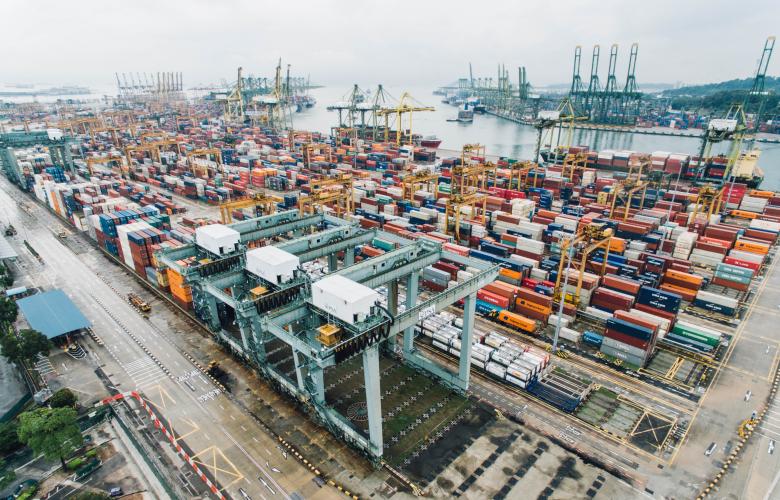Infrastructure development to improve logistics performance
Contact
Infrastructure development to improve logistics performance
World Bank 2018 Logistics Performance Index reveals Indonesia has jumped to a global ranking of 46 compared to 63 in 2016.
Since coming into power, President Joko "Jokowi" Widodo has made infrastructure development a top priority of his administration.
During the 2019 election year, the government has reserved 17 per cent of its total budget (approximately, USD $29.45 billion) for infrastructure projects such as building roads, railways, bridges, irrigation, airports and public housing.
The goal of the governments' working programs is to decrease logistics costs - which have been one of the highest in the ASEAN region - that weaken the competitiveness of Indonesian exports.
The accelerated infrastructure development over the last three years has led to significant achievements as can be seen in the World Bank's recently released biannual Logistics Performance Index (LPI) 2018.
The LPI, which analyses 160 countries, ranked Indonesia as the third-best performer among the lower-middle income group, after Vietnam and India.
According to the 2018 LPI, Indonesia ranked 46 globally, up from 63 in 2016. Lower than Thailand (32), Vietnam (39), and Malaysia (41).
The LPI measures four main indicators: the efficiency of customs and border management clearance, the quality of trade and transportation-related infrastructure, the competence and quality of logistics services and the ability to track and trace consignments.
Logistics performance is strongly associated with supply chain reliability and predictable shipment delivery. Predictable, reliable supply chains are central to good logistics performance as highly uncertain lead times can disrupt production and exports, forcing firms to build up large stocks of inputs and products, thereby eroding competitiveness within the global and regional value chains that use just-in-time production.
But regulatory reforms of the institutions involved in the logistics sectors are also key, though rather challenging because they deal with different sectors such as trucking, brokerage and terminal or warehousing operations.
For example, the port handling process of cargo at Jakarta’s Tanjung Priok Port involves more than a dozen institutions and service providers, not to mention land transportation. They are administered and overseen by different government ministries.
The Indonesian government has launched over 15 regulatory reforms over the past two years to cut red tape and to improve inter-ministerial coordination and cooperation in managing and overseeing economic activities as well as in business licensing. But poor coordination has remained one of the biggest bureaucratic barriers to smooth reform implementation.
Source: World Bank Logistics Performance Index 2018, The Jakarta Post
Similar to this:
AIIB approves USD $691.5 million loan to fund infrastructure projects
The first of its kind? - office building with private concierge in Jakarta





